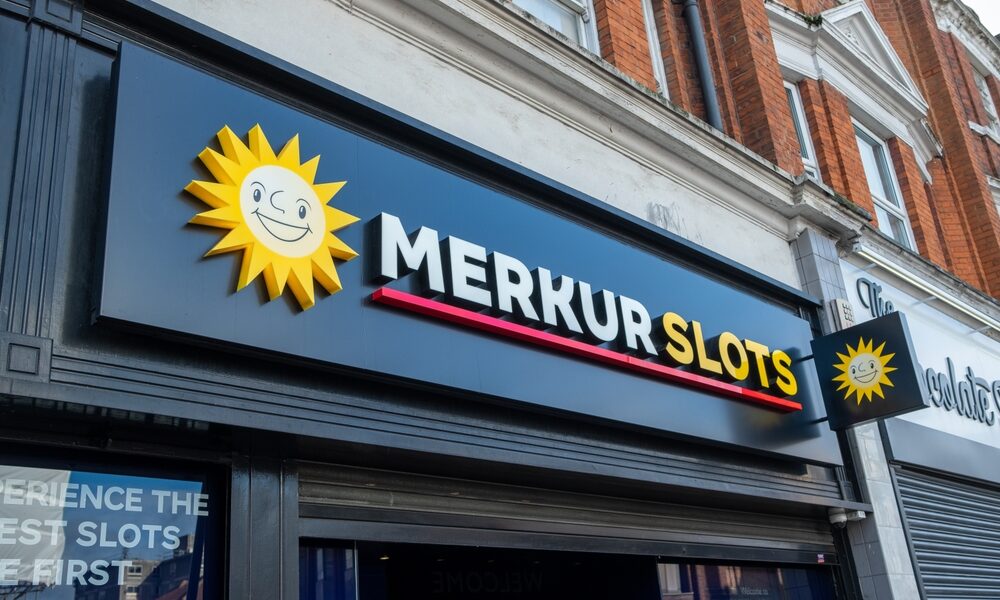The Nevada Gaming Commission Thursday approved a gaming license for European-based Merkur, paving the way for its acquisition of Las Vegas-based gaming technology provider Gaming Arts.
The approval followed a 70-minute hearing in which the Commission also approved licensing of Michael Gauselmann, chairman of the board; Jurgen Stuhmeyer, director; Lars Felderhoff, CEO and chief financial officer; Manfred Stoffers, director; and Jochen Clemens as a manager.
In 2023, Merkur announced a strategic-cooperation agreement with Gaming Arts for the joint development and supply of games for North American casinos. The company said Gaming Arts’s rapid growth and innovation in the gaming-supplier space had created an outstanding platform for growth in the global market.
Gaming Arts is a privately owned end-to-end technology provider of electronic gaming machines, electronic table games, bingo, keno, and emerging technologies licensed in about 170 jurisdictions.
Gaming Arts’s CEO Mike Dreitzer is leaving the company to take over as chair of the Nevada Gaming Control Board, replacing Kirk Hendrick in June. Its 66 other employees will remain on board.
The acquisition is financed mostly through debt forgiveness and a loan guarantee for Gaming Arts, along with a nominal purchase price.
Merkur is part of the Gauselmann Group, a German, family-owned, international group of companies in the entertainment and leisure industry. For more than 65 years, the group has been developing, producing, and distributing games and gaming machines and systems and cash-handling solutions.
In addition, the Gauselmann Group operates the Merkur Casino arcade chain, the Merkur Spielbanken casinos, and casinos on cruise ships. The group is also active in the sports betting and online gaming sectors.
The Merkur unit consolidates Gauselmann’s B2B business, which includes the development, production, and sales of games and gaming machines in Germany and abroad and the development and marketing of online casino games.
Merkur legal counsel Dennis Gutwald of McDonald Carano said entering Nevada is a big step for the company and is equal in size to some of the state’s largest gaming operators. It will provide stability to Gaming Arts and be a good combination not only for Nevada, but the U.S. as a whole.
“This bodes very well for Gaming Arts,” Gutwald said. “Merkur is a substantial company and is going to grow this company and probably add a number of jobs and protect the jobs already there.”
Felderhoff said as a family-owned company, they don’t operate on a quarter-by-quarter basis, but look at the long term. It has offices in 32 countries and generated revenue in more than 56 countries in 2024.
“The size of the U.S. market is attractive and we would like to have a foot in the market,” Felderboff said. “Even though Merkur is a larger player in Europe, we will proceed step-by-step in our approach to enter the market.”
Felderhoff said they chose Gaming Arts as a vehicle to enter the land-based market in the U.S. instead of setting up a business on their own. Their plan is to grow the business and keep the team of Gaming Arts and invest more in the operation.
“We will do that with a long-term strategy, by bringing together the strength of Gaming Arts and Merkur,” Felderhoff said. “We will build a strong base for expansion.”
Commissioner Brian Krolicki called it an exciting move for Nevada. He said Merkur is a spectacular company with 15,000 employees worldwide in 270 jurisdictions.
Felderhoff told Krolicki that gaming operators are looking for more choices for products in the marketplace.
“We won’t be IGT or Scientific Games, but we want to be a supplier in a robust niche market in the U.S. We don’t intend to operate B2C in the U.S. We want to stay in the B2B business. In the medium and long term, we see opportunities to provide games in the online space. Gaming Arts is trying online games, which are successful, in addition to the land-based. The content is great, but is different from what we have back home in Europe. We also have markets in Europe and South America where we need U.S. (content). We want to leverage all of the assets of Gaming Arts in other markets outside the U.S.”

